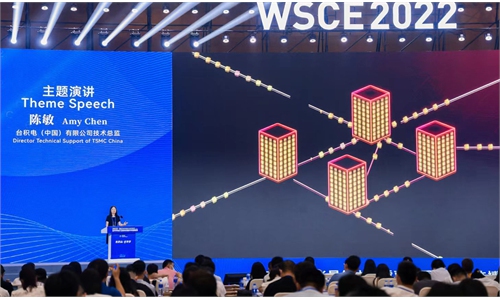
Illustration: Chen Xia/Global Times
A South Korean delegation comprising officials from various government departments will leave for the US to pay a three-day visit, during which South Korea aims to express concerns over the US' so-called Inflation Reduction Act, a recently signed law that reportedly excludes electric vehicles (EVs) assembled outside North America from tax incentives, the Yonhap News Agency reported on Monday.South Korean officials' scheduled visit to Washington came amid mounting concerns expressed by South Korean automakers, most of which make their flagship EVs at South Korean plants and ship them overseas. Analysts believe the US' Inflation Reduction Act will reduce the competitiveness of South Korean-made EVs in the US market.
Yonhap said, in another report on August 22, that South Korea would review whether to file a complaint at the WTO, citing possibilities that the US law could violate WTO rules and a bilateral free trade deal.
Observers now focus their eyes on Seoul and have one question in mind: Will the US-South Korea EV disputes affect Seoul's decision on the US-led "chip alliance"? According to media reports, the US government has asked Seoul to inform it by August 31 whether it would join the so-called "Chip 4" semiconductor alliance.
In March, the US proposed the idea of "Chip 4" and sent invitations to Japan, South Korea and China's Taiwan region. While the semiconductor alliance is ostensibly aimed at strengthening equal and mutually beneficial cooperation throughout the chip-making production chain, one thing is obvious: Washington intends to build a US-oriented and US-led global semiconductor industrial chain that excludes China, and force its allies to serve American interests.
US President Joe Biden signed the CHIPS and Science Act of 2022, also known as the CHIPS Act, into law in August. The bill provides $52.7 billion for American semiconductor research, development, manufacturing and workforce development, but includes also restrictive items. For instance, media reports said the bill requires recipients not to build certain facilities in China and other "countries of concern."
With the bill, the Biden administration has taken its first step in bringing semiconductor research, development and manufacturing back to the US, and we believe Washington will introduce more measures in the future to promote the localized production and try to build a US-oriented semiconductor industrial chain. South Korean semiconductor companies may soon face the same situation as the the country's automakers, which have been excluded from US tax incentives.
If South Korea succumbs to US pressure and join the "Chip 4," its domestic semiconductor sector may eventually become an appendage to US hegemony. It has been increasingly clear that the US is trying to build a global semiconductor industrial chain it dominates. Washington won't change its mind no matter whether Seoul joins the "Chip 4" or not. What's worse, South Korea doesn't have many bargaining chips in fighting for equal rights among members if the country joins the "Chip 4." The case of EV tax incentives has once again proved that South Korea is at a disadvantage in supply chain competition with the US.
South Korea has become an important global player in the semiconductor industry, but owing to a lack of a complete supply chain, its semiconductor sector is highly dependent upon overseas markets. China remains the biggest market for South Korean semiconductor companies. Without the Chinese market, it will be impossible for South Korean semiconductor companies to develop and move up the supply chain. Without the Chinese market, South Korea will have limited bargaining power when negotiating with the US.
The US tries to exclude China from the global semiconductor industrial chain but its efforts will never succeed. China doesn't pursue a path of building exclusive industrial chain and instead keep an open mind toward mutually beneficial cooperation with all partners in the global semiconductor industrial chain.
China and South Korea have room for cooperation in many fields, in addition to the semiconductor industry. The two countries have agreed on Saturday to boost cooperation and communications on supply chains by setting up a new high-level consultative body, Yonhap reported.
Concerns from the South Korean delegation about the US, as well as South Korea's supply chains cooperation with China, taken together, is an interesting phenomenon, reflecting the different attitudes of China and the US over supply chain issues. Joining a US-oriented and US-led supply chain runs counter to South Korea's strategic interests.



